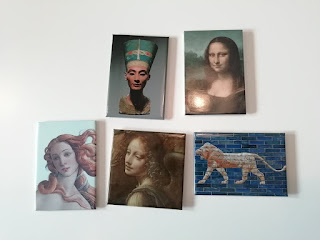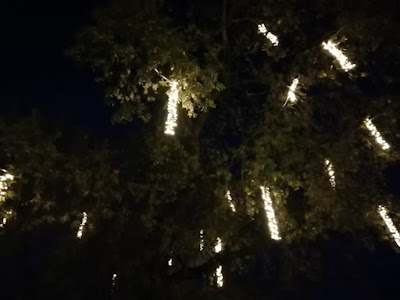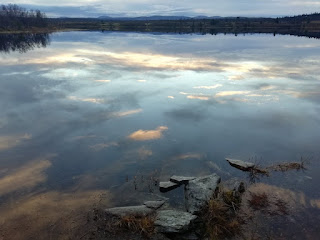Reconnecting with the feminine
Carl Jung’s
diaries from 1913-1932, the Black books, were published in October 2020. The
context of the beginning of the diaries is Jung’s break with Freud, his mentor
and an important father figure in his life, and the following crisis in Jung’s
professional and personal life. A life-crisis will often imply the falling away
of our surrounding structures which represent safety and control, and this may
open up for important insights because we get access to the unknown. For Jung,
in the crisis he realized that he had somehow lost the connection with his soul.
Jung writes on the first page of the diaries:
“A huge
task lay before me – I saw its enormous size – and its value and meaning
escaped me. I got into the dark, and I groped along my path. That path led
inward and downward. (…) My soul, my soul, where are you? Do you hear me? I
speak, I call you – are you there? I have returned, here I am again. I have
shaken the dust of all the lands from my feet, and I have come to you again, I
am with you. After long years of long wandering, I have come to you anew. (…)
Do you still know me? How long the separation lasted!” Jung wants to reconnect
with his soul, he doesn’t want to continue “searching for himself outside
himself”. He knows he has for many years forgotten his soul, because he focused
on outer things: “I belonged to men and things. I did not belong to myself.”
Jung’s
process of attempting to reconnect with his soul, who he first sees as a girl
and then as a woman, is the departure point of an amazing journey inwards. Jung
wrote about his wonderful and terrifying journey in detail in the seven Black
books, and in a way this, which he called the “confrontation with his soul” and
“confrontation with the unconscious”, may be understood as part of the
empirical fundament for Jung’s theories about the psyche. He discovered and described the mythical and archetypal layers in the psyche, which he called the collective unconscious.
One important
premise to Jung is that we need to be aware of the myth we are living, because without a mythical awareness we are uprooted, with no true link to the past and the
ancestral life which continues within us. Becoming aware of the myth we are living,
gives the opportunity to choose differently, to break free from the unconscious
patterns and maybe even start living a myth which is more in resonance with the deeper, true identity.
Early in
the Black books something really important happens to Jung; in his imagination he
sees figures and events which are pointing to the myth or narrative he has been
unconsciously living. In one of his early visions he participates in slaying
Sigfried, a mythical hero figure in European history of ideas. This may be interpreted as Jung killing the
myth he has been living; the hero myth, which emphasizes the masculine hero –
strong, rational and autonomous.
So Jung reconnects
with his feminine soul and his inner hero dies, and hence the hero’s power in Jung’s
psyche is diminished. I see this as a story of Jung reconnecting with the
archetypal feminine dimension in the psyche. The famous jungian Erik Neumann
describes the archetypal feminine in his book The Great Mother: “Eros
emphasized rather than Logos, relatedness more vital than differentiation, the
containing vessel more informing than the discriminating sword, moon knowledge
more valued than sun knowledge, Feeling and Intuition more prized than thinking,
the informing source of Wisdom and living Nature rather than the scientists and
their brains with their dead ‘facts’, the Unconscious more sacred than Ego
consciousness”. Neuman says that the health and creativity of every man depend
very largely on whether his consciousness can live at peace with this stratum
of the unconscious, or consumes itself in strife with it.
Jung’s journey towards healing and becoming more whole, is in this perspective the story about a man attempting to connect with his emotions, body, vulnerability and dependency on other human beings and nature. In the Black books it seems that this was a struggle to him, maybe a challenge he needed to live rather than a problem which could be solved. But it seems that he realized that the hero-myth he unconsciously had been living had prevented him from living his life fully, so reconnecting with his feminine soul gave access to the flow of creativity, and from this he created his life's work.
The question to all of us is of course, what myth am I unconsciously living, and how can I connect with the parts of myself which may give access to other ways of living and creating? But maybe more importantly is, what are the myths the collective unconsciously is living in this time of climate crisis and war, and which are the new myths we need in order to live more in harmony with eachother and nature?




Comments
Post a Comment